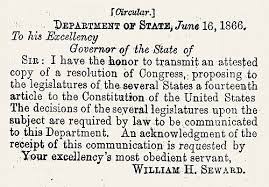The Importance and Impact of the 14th Amendment

Introduction
The 14th Amendment to the United States Constitution, ratified in 1868, is a critical piece of legislation that has profoundly shaped American civil rights and liberties. It was established in the aftermath of the Civil War, aimed at ensuring equality and protecting the rights of newly freed slaves. Its relevance continues to resonate in contemporary discussions concerning race, citizenship, and human rights.
Key Provisions of the 14th Amendment
The 14th Amendment consists of several important clauses, most notably the Equal Protection Clause, Due Process Clause, and the Citizenship Clause. These clauses collectively guarantee that all individuals born or naturalized in the United States are citizens and are entitled to equal protection under the law. The Amendment has served as the basis for numerous Supreme Court cases that have defined and expanded civil rights over the decades.
Recent Developments and Legal Precedents
In recent years, the 14th Amendment has been invoked in various high-profile cases. For instance, it played a pivotal role in the landmark Supreme Court case of Obergefell v. Hodges (2015), which legalized same-sex marriage across the United States by citing the right to equal protection under the law. Additionally, the Amendment has been crucial in discussions surrounding immigration policies and voting rights, bringing to light the ongoing debates about who qualifies for citizenship and the legal protections associated with it.
Conclusion
The significance of the 14th Amendment cannot be understated. As America continues to navigate complex social issues, including racial equality and immigration reform, the 14th Amendment remains a fundamental element in ensuring justice and equality for all citizens. Its interpretation by courts and lawmakers will likely evolve, reflecting the changing societal landscape and the enduring struggle for civil rights in the United States. Understanding this Amendment is essential for anyone interested in the ongoing discourse surrounding American democracy and individual rights.





